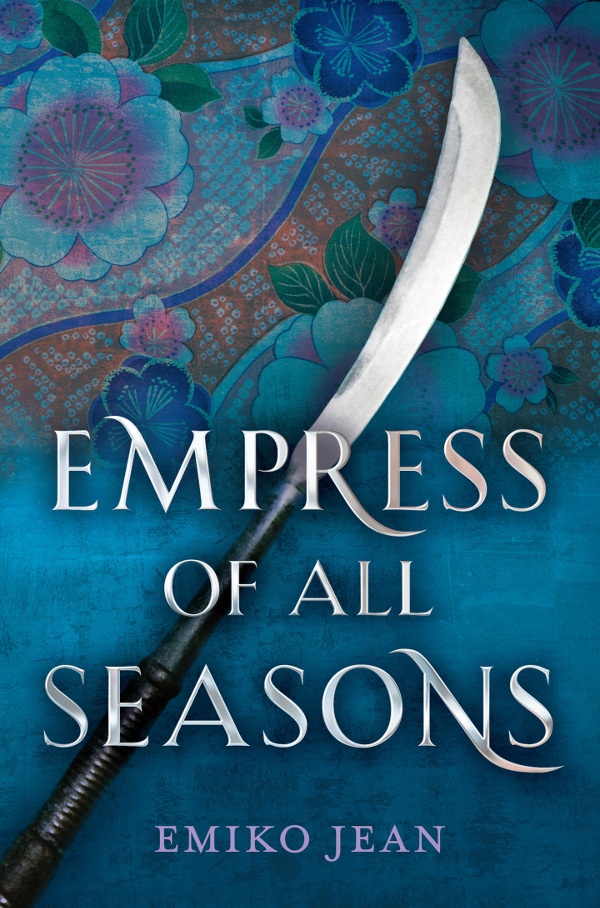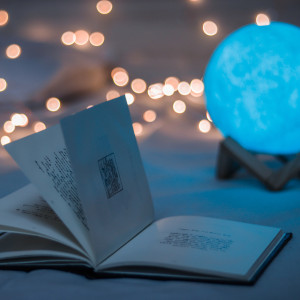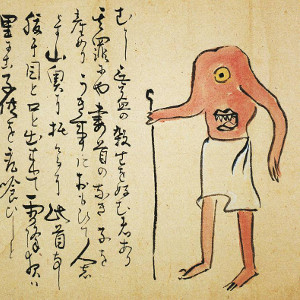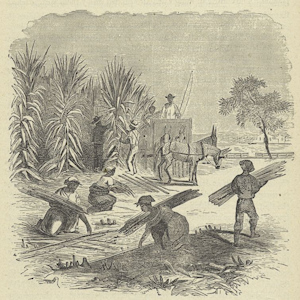
About the Book
-
Author:
- Emiko Jean
- Genre:
- Fantasy
Cover Story: Pretty Deadly
BFF Charm: Mehk It Rain
Talky Talk: She Said, He Said, He Said
Bonus Factors: Yōkai, Magic
Anti-Bonus Factor: Slavery
Relationship Status: Going Dutch
Trigger Warning: There are memories of abuse and instances of suggested abuse in Empress of All Seasons that might be triggering for some readers.
Cover Story: Pretty Deadly
This cover is a nice nod at the Japanese culture of the story within, but … it’s otherwise kind of boring? It looks a little too stock photo, like it could too easily be the cover of a Japanese history textbook.
The Deal:
Mari is a yōkai, a type of paranormal creature. Her specific clan are known as the Animal Wives, beautiful women who can turn into terrifying monsters and enjoy marrying men, then stealing their wealth. But Mari was born somewhat plain, and without the ability to shift completely, so her clan has long seen her as something lesser. Her mother, however, had a specific destiny in mind for her daughter: compete to become the next Empress. As dangerous as the competition can be, it’s even more so for Mari, as the Emperor—and his son, the Cold Prince, who’ll become the winner’s husband—hate yōkai, particularly those who aren’t under the Empire’s control.
BFF Charm: Mehk It Rain

I found it hard to like any of the main characters in Empress of All Seasons, whether it be because I found them kind of boring and overly “woe is me” (Mari), impulsive in a bad way (the Cold Prince, Taro), or a little stalkerish and can’t take no for an answer (Akira, Mari’s childhood friend and half-yōkai). None of them are all that nice to each other, either, even when they think they’re being loving and/or charismatic. Too many agendas and secrets.
Swoonworthy Scale: 3
There’s a bit of a love triangle in Empress of All Seasons, with Mari finding herself in the middle of Akira and Taro. She loves Akira—but not in that way—and Taro’s intriguing, for more than just his status and wealth. But there’s not a lot of chemistry between any of the characters, and a surprising amount of instalove for Mari. Who, certainly, is deserving of love, but I don’t quite get the appeal.
Talky Talk: She Said, He Said, He Said
In addition to reading Mari’s POV, Jean also gives readers insight into the minds of Akira and Taro. This switching helps move the story along, as we get to see the action that happens in various places and while the three are alone, but it also does a disservice to the story. Had Jean stuck with Mari’s POV, or even Akira’s, the story would have felt more complete. As it is, I feel like there’s more to each of their stories that could have been told to flesh out the world, the characters’ motivations, and their relationships to each other.
Bonus Factor: Magic

As part of the competition, the young women vying for the Empress title are forced to survive in four “seasonal” rooms. These rooms are filled with dangers, many of them related to the season for which they’re named. (The Emperor obviously didn’t hate yōkai enough to not use the powers some of them were blessed with.)
Bonus Factor: Yōkai

I’m unfamiliar with a lot of Japanese folklore, but I loved the small glimpses into the tales of the various paranormal creatures that pop up in Japanese fairy tales, and I loved that they were a part of society in Empress of All Seasons. Though …
Anti-Bonus Factor: Slavery

It was really hard reading about these creatures—many of them non-dangerous—being collared and enslaved simply because they were born different.
Relationship Status: Going Dutch
It was nice meeting you, Book, but I couldn’t help but leave our date feeling like you were holding back. I don’t mind not knowing everything about a new friend/possibly more upon first meeting, but I also appreciate when I’m left actually wanting to know more.
FTC Full Disclosure: I received a copy of this book from HMH Books for Young Readers, but got neither a private dance party with Tom Hiddleston nor money in exchange for this review. Empress of All Seasons is available now.